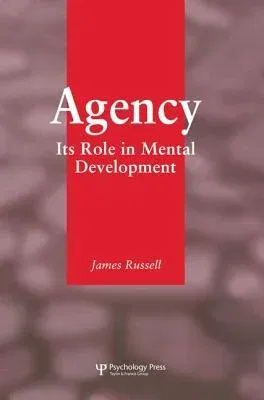James Russell
(Author)Agency: Its Role In Mental DevelopmentPaperback, 25 June 2015

Qty
1
Turbo
Ships in 2 - 3 days
Only 1 left
Free Delivery
Cash on Delivery
15 Days
Free Returns
Secure Checkout

Print Length
336 pages
Language
English
Publisher
Psychology Press
Date Published
25 Jun 2015
ISBN-10
1138876968
ISBN-13
9781138876965
Description
Product Details
Author:
Book Format:
Paperback
Country of Origin:
US
Date Published:
25 June 2015
Dimensions:
22.61 x
14.73 x
2.54 cm
Genre:
Health & Fitness
ISBN-10:
1138876968
ISBN-13:
9781138876965
Language:
English
Location:
Oxford
Pages:
336
Publisher:
Weight:
521.63 gm